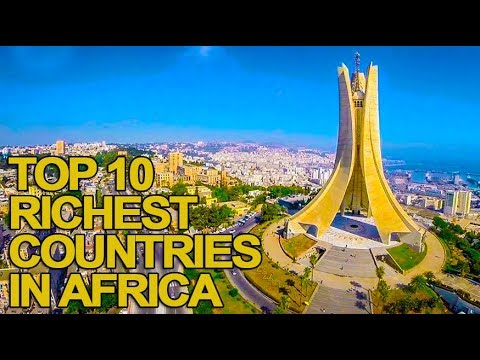
The International Monetary Fund (IMF) has released the list of 10 wealthiest African countries by GDP per capita (PPP) as of February 2024.
The latest list of Africa’s wealthiest countries includes smaller nations such as Mauritius and Libya.
Unfortunately, Nigeria is missing from the list.
The ranking is based on the countries purchasing power parity (PPP), which takes into account inflation and local cost variations and provides a more accurate comparison of the average standard of living in those nations.
GDP per capita plays an integral part in assessing Africa’s wealthiest countries, which measures the value of all goods and services produced per citizen.
Below are the countries that made the list.
Mauritius
Mauritius is currently the richest country in Africa.
It has a GDP-PPP of $31,157.
Mauritius’ diverse economy has successfully moved beyond its traditional sectors, such as sugar and textiles.
Libya
Libya comes second on the list. It has a GDP-PPP of $26.527.
The Northern African country’s wealth comes primarily from its vast oil resources, and efforts to stabilise its economy have become critical in maintaining its position among Africa’s wealthiest nations.
Botswana
Botswana has a GDP-PPP of $20.311, the country is known for its stable economic growth and successful diversification strategies.
Botswana has effectively managed its diamond resources and invested in tourism and agriculture, contributing to its financial strength.
Gabon
Gabon has a GDP-PPP per capita of $19,865, driven by its abundant natural resources, including oil and minerals.
The country’s government emphasises sustainable development and economic diversification, vital in maintaining its status as one of Africa’s wealthiest nations.
Egypt
Egypt is the fifth richest country in Africa. It has a GDP-PPP per capita of $17,786.
Egypt operates a diverse economy with critical sectors including tourism, agriculture, and manufacturing.
Equatorial Guinea
The country has a GDP-PPP of $17,237. The country’s source of revenue comes from its vast oil wealth to drive.
Oil still plays a dominant part in the country’s economy, but it is trying to diversify its economy and invest in sectors like agriculture.
South Africa
South Africa is the seventh richest country on IMF’s list. It has a GDP-PPP per capita of $16,625.
South Africa’s diverse economy encompasses mining, manufacturing, and services, making it an essential player in the region.
Algeria
Algeria The North African country has a GDP-PPP per capita of $14,227.
It relies heavily on hydrocarbons, with ongoing efforts to diversify into other renewable energy and manufacturing sectors.
Tunisia
Tunisia has a GDP-PPP of $13,695.
The North African country is a strategic economic player.
Tunisia focuses on economic reforms, tourism, and manufacturing, contributing to its ranking among Africa’s wealthiest countries.
Morocco
Morocco’s GDP-PPP per capita is put at $10,926.
The country operates a diverse economy while focusing on agriculture, tourism, and manufacturing,
The post List Of Richest Countries In Africa And Key Sources Of Their Revenue appeared first on Naija News.


